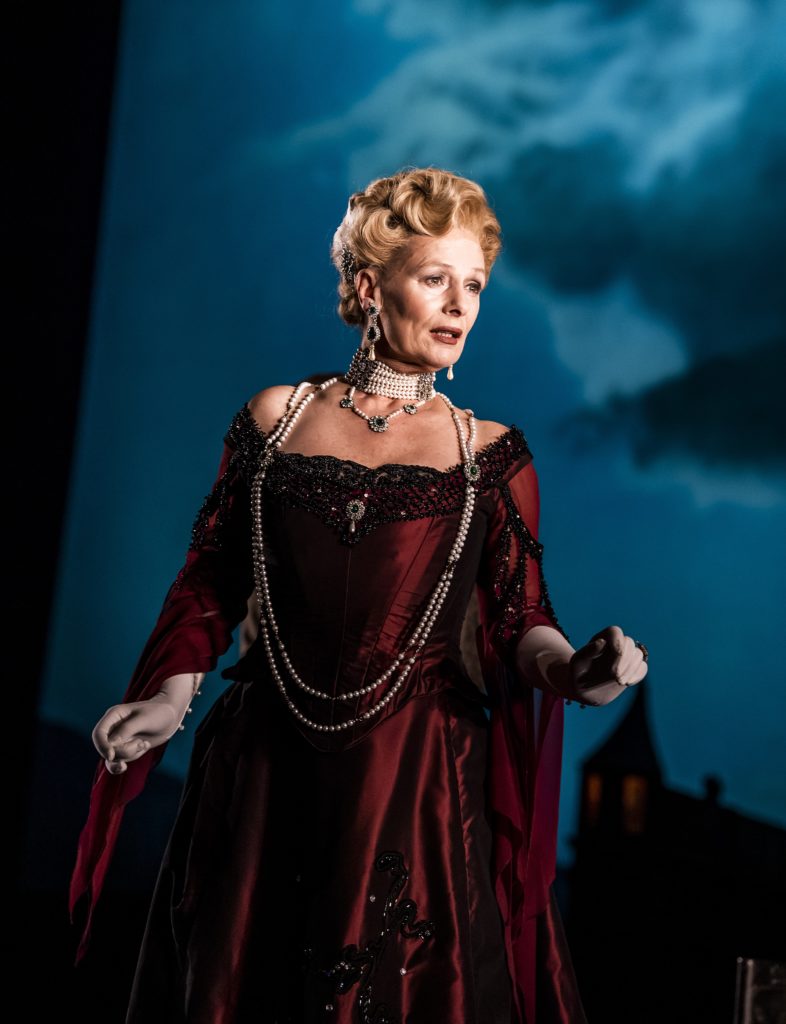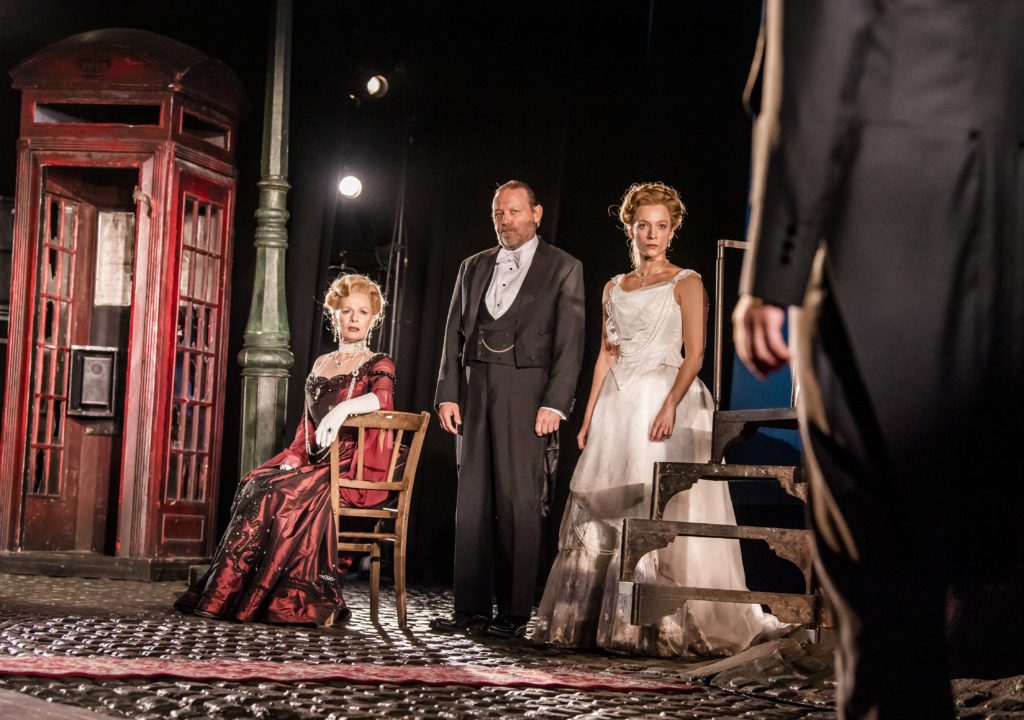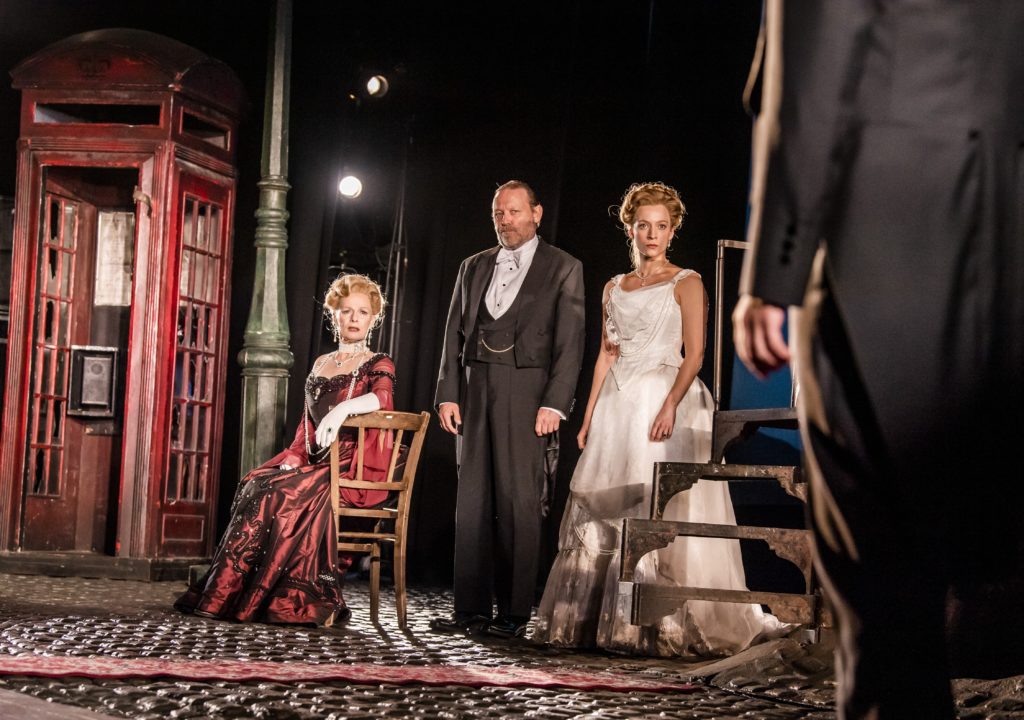
IT began at York Theatre Royal in 1989, last played there in 2018 and sold out this week’s run at the Grand Opera House well before the opening night.
Welcome back Stephen Daldry’s award-encrusted reinvention of Bradford socialist playwright JB Priestley’s time play, a set text on the school curriculum. Hence teenagers aplenty at Wednesday’s matinee, initially tucking into noisy packet contents, but gradually being drawn into Inspector Goole’s forensic, if unconventional inquisition of the wealthy Birling family on the 1912 night that daughter Sheila has become engaged to Gerald Croft.
More noise came from an audience member striding across the creaking dress-circle floorboards to complain of not being able to see inside the Birlings’ Edwardian home. But that is the point. Theirs is an enclosed, blinkered, self-serving world, one that the arrival of Liam Brennan’s Scotsman Goole will open to exposure and cause a stink, like the peeling back of a sardine can.
After sirens and rain and an orchestral swell at the start, as children seek to find a way through the stage curtain to remind us this is the world of theatre at play, the house is revealed, perched, like an oversized doll’s house, on a bombed London street, in Daldry’s nod to Priestley’s play being written in 1945.
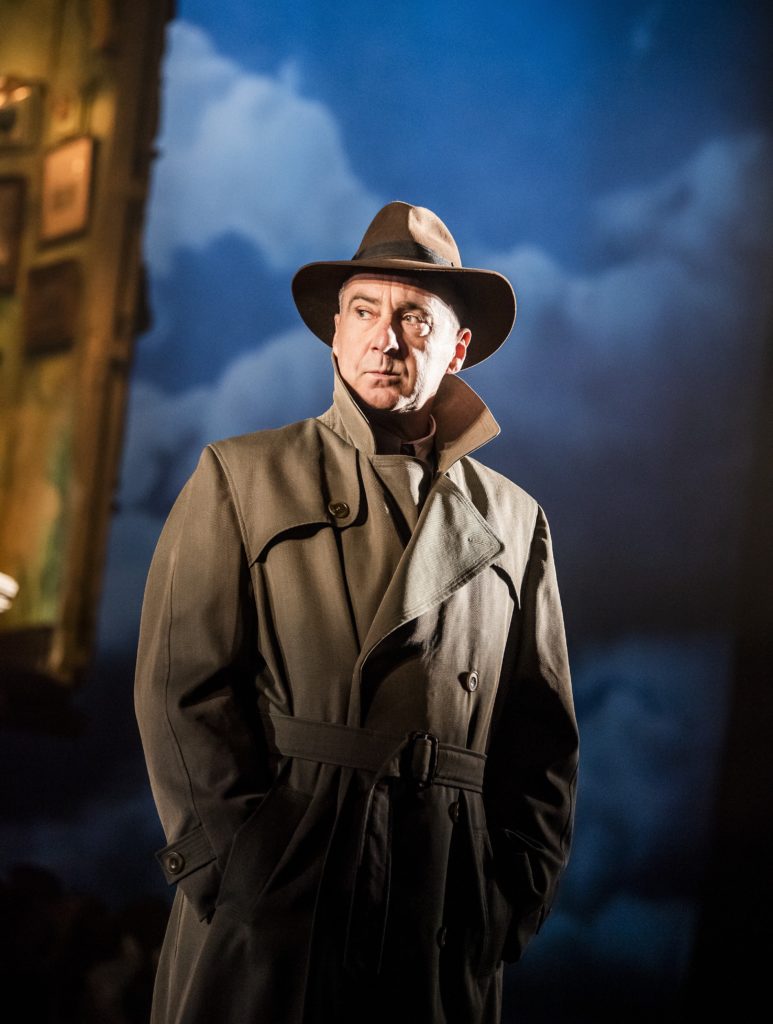
Nearby stands a red telephone box, stripped of its door, in Ian MacNeil’s still breathtaking design, no matter how many times you may have seen Daldry’s production over the past 30-plus years.
Smug conversation emerges through the windows, dominated by knighthood-seeking, cigar-smoking businessman Arthur Birling (Jeffrey Harmer) and Sheila’s fiancé Gerald (Simon Cotton), an Arthur in the making. Wastrel son Eric (George Rowlands, understudied by Maceo Cortezz on Wednesday), forever disappointing his father, says little.
Outside, urchin children are playing on the shattered street, later joined by “supernumeraries”, haunting figures to match fellow outsider Edna (Frances Campbell), the family servant ignored by all but Sheila (Chloe Orrock), the only one to express regret at what subsequently unfolds. Edna will dutifully, silently, attend to her duties, providing cups of tea and food for Goole too.
Investigating the death of a young woman in poverty, he is the ultimate outsider, exposing something rotten in the state of the Birlings/England. Goole by name, ghoul by nature, the Marley to bilious Arthur Birling’s Ebenezer Scrooge, he is also Priestley’s still prescient prophet on stage (JB foreseeing the need for change in GB that will sweep Labour to power in 1945). The voice of moral conscience, the harbinger in the moonlight, demanding a turning of the tide.
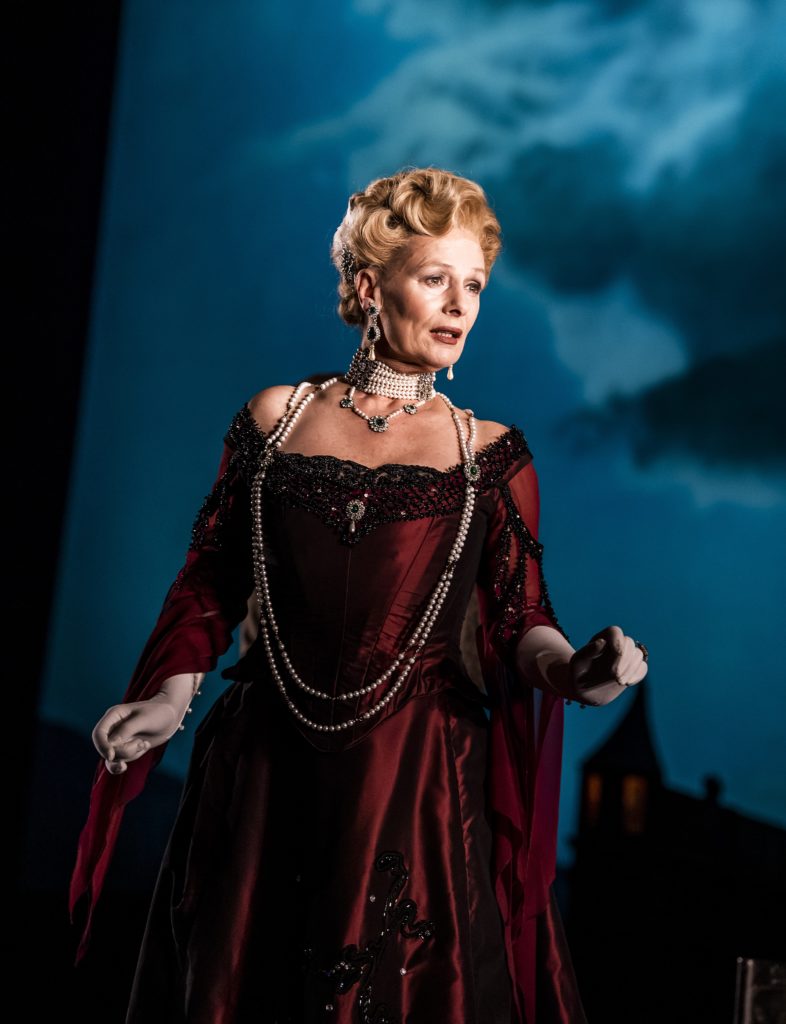
Like on a doll’s house, the whole of the front of the house suddenly opens, mini-front door et al. In turn, Goole will remove hat, coat and pinstriped suit jacket, even rolling up his sleeves, the more he exposes the arrogant, entitled behaviour of the Birlings and Croft, especially when the monstrous matriarch, Christine Kavanagh’s do-gooding, but does-no-gooding Sybil Birling, makes her grand entry.
Goole delivers one of theatre’s most resonant final speeches: “And I tell you that the time will soon come when, if men will not learn that lesson, then they will be taught it in fire and blood and anguish. Good night.”
It becomes all the more resonant in our strike-ridden, blame-game, divided, dyspeptic disunited kingdom, as Priestley calls for the need to care for each other, for compassion and collective responsibility, but definitely not applied with the insincerity of George Osborne’s “We’re all in this together” mantra of the austerity years.
In her interview, Christine Kavanagh talked of Daldry’s demeanour in the rehearsal room, his sense of humour, mischief and playfulness undimmed after so many years of directing this remarkable piece of theatre. That spirit pours through his cast in this latest tour, and you can be sure the inspector will keep on calling. We need to listen to him, that warning of fire and blood and anguish.
Review by Charles Hutchinson

